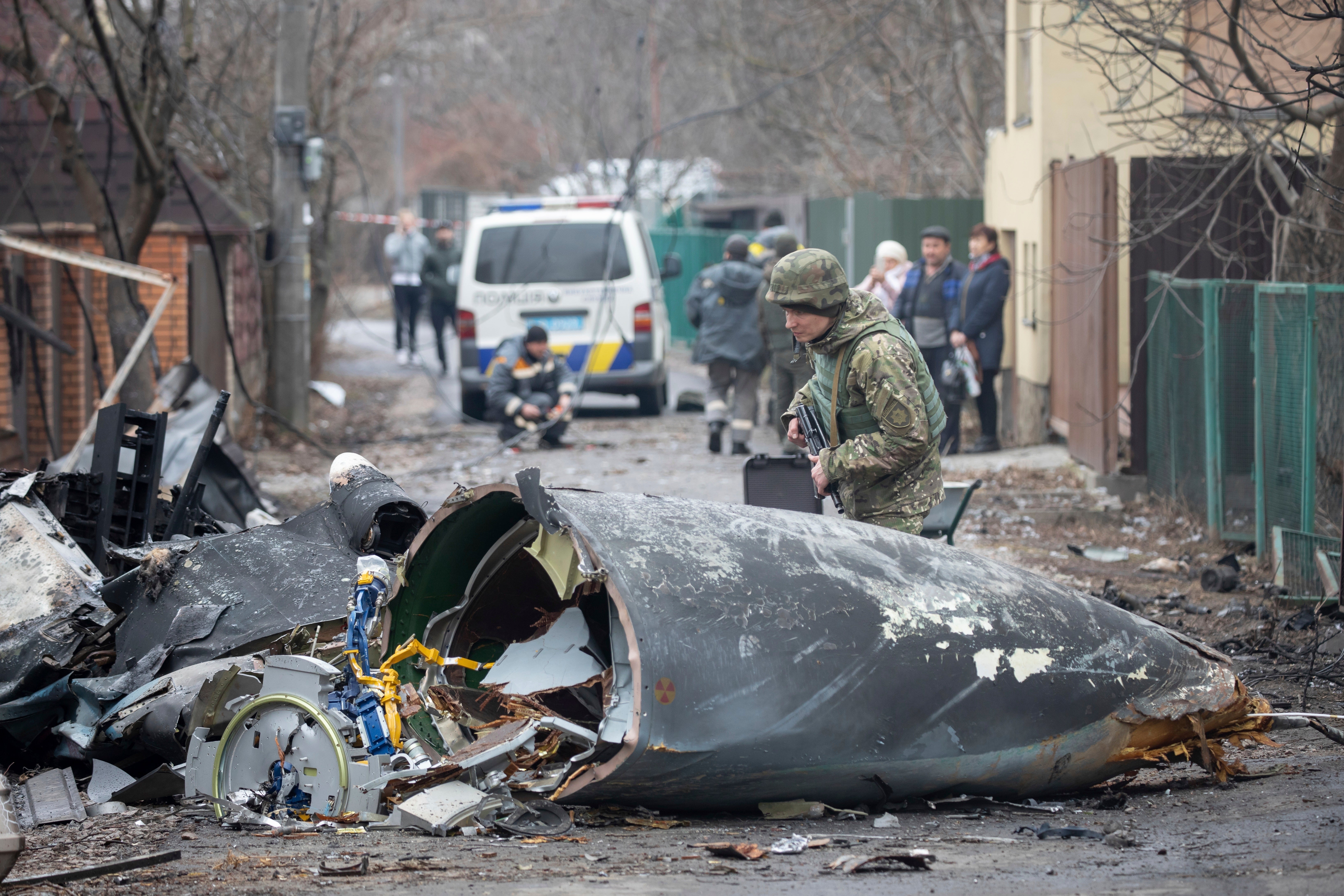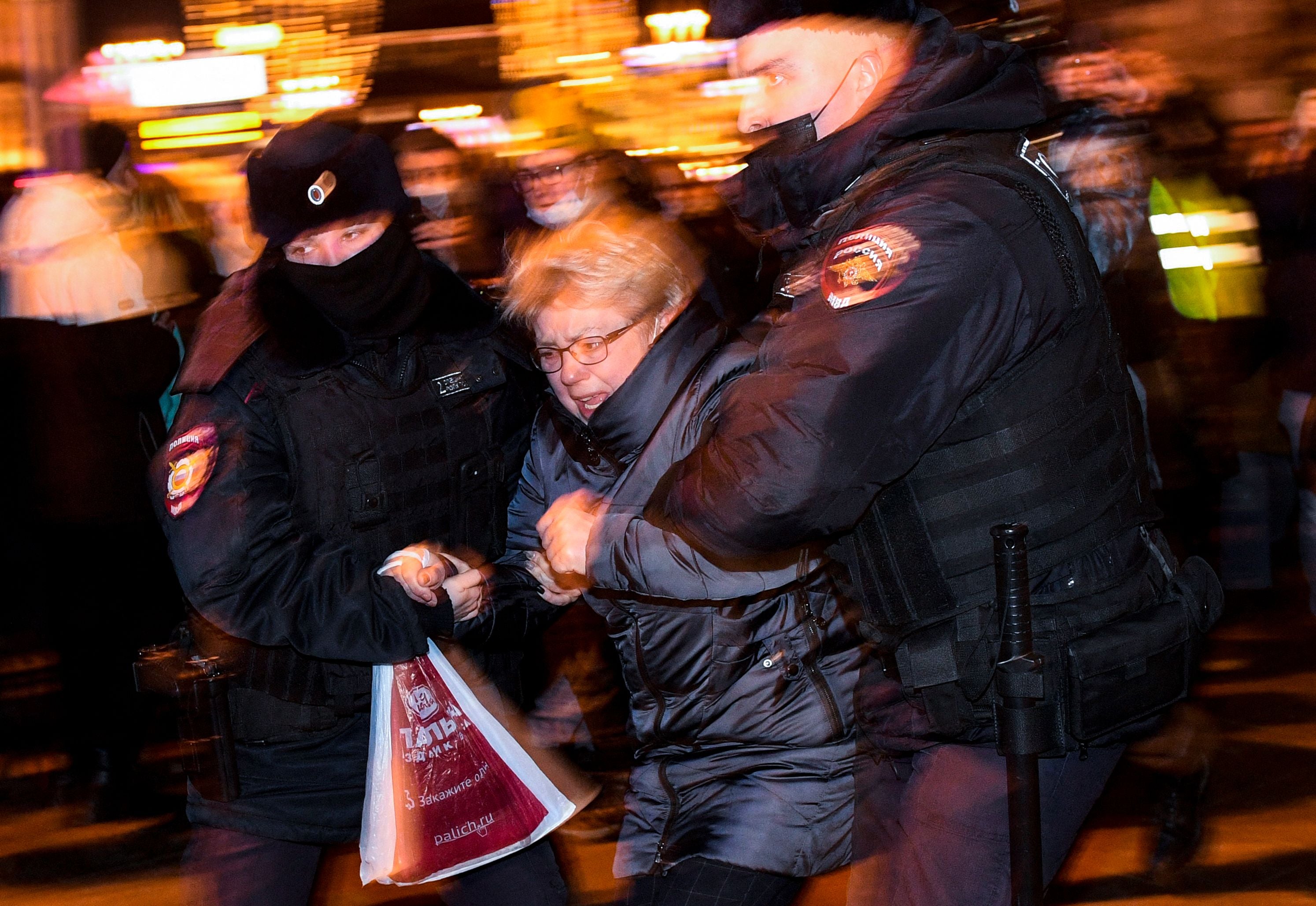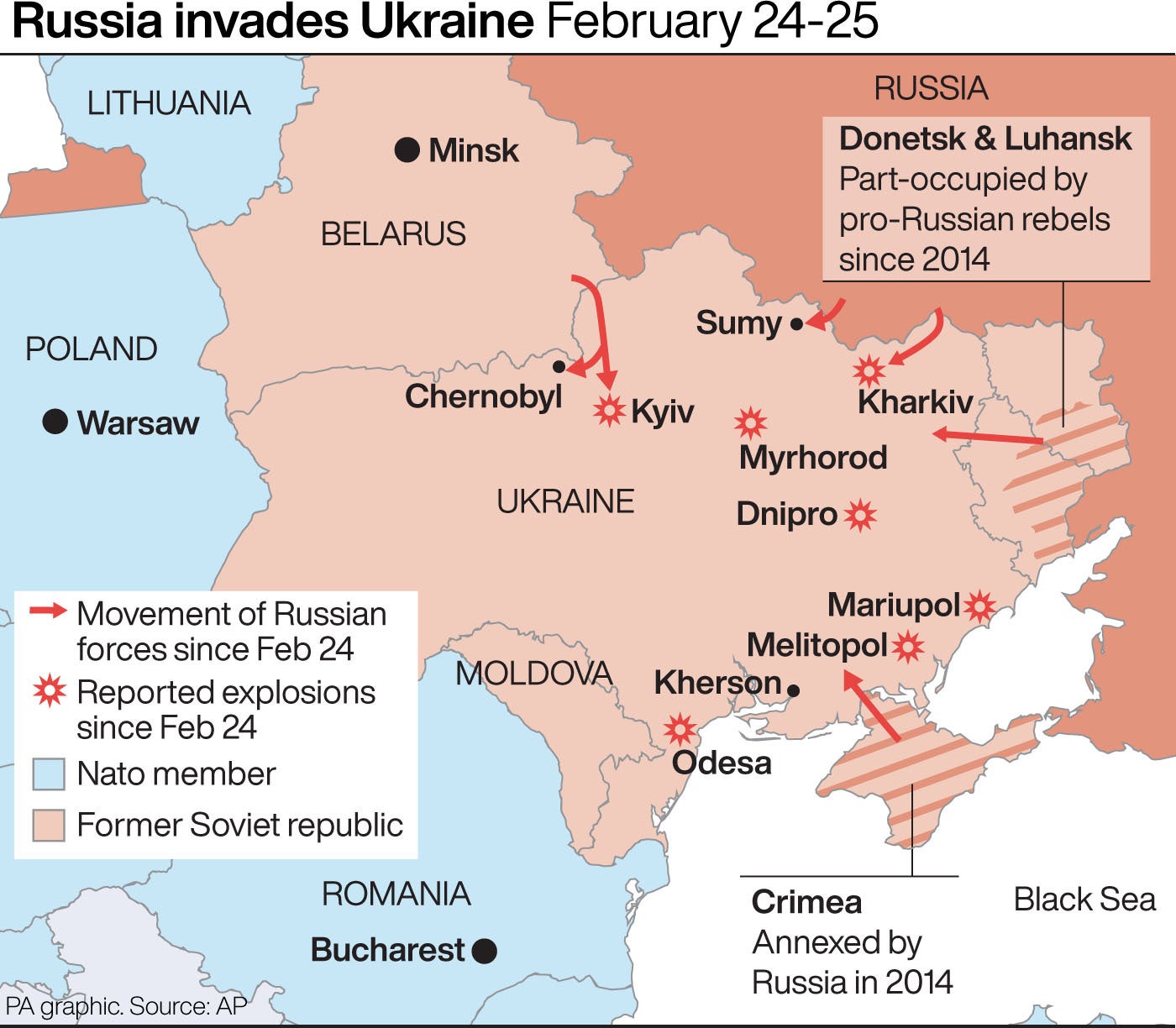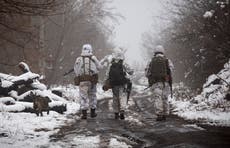‘Another world war is possible’: Russians fearful over consequences of Putin’s Ukraine invasion
Economic fallout, international isolation, and political alienation: Many Russians fear the consequences of Putin’s Ukraine invasion, writes Samuel Lovett. Some, however, see the justification


Your support helps us to tell the story
From reproductive rights to climate change to Big Tech, The Independent is on the ground when the story is developing. Whether it's investigating the financials of Elon Musk's pro-Trump PAC or producing our latest documentary, 'The A Word', which shines a light on the American women fighting for reproductive rights, we know how important it is to parse out the facts from the messaging.
At such a critical moment in US history, we need reporters on the ground. Your donation allows us to keep sending journalists to speak to both sides of the story.
The Independent is trusted by Americans across the entire political spectrum. And unlike many other quality news outlets, we choose not to lock Americans out of our reporting and analysis with paywalls. We believe quality journalism should be available to everyone, paid for by those who can afford it.
Your support makes all the difference.Mapat believes there is only one way this conflict ends for Russia.
Not in bloodshed – as it will for those caught in the crossfire, left to die in the streets and fields of Ukraine – but in economic hardship and uncertainty.
“I do not see the prospect of life in Russia anymore,” he says. Already, Mapat, who lives in Moscow, has made plans to leave his homeland for the US and, in doing so, cross a line that has long separated the west from its Slavic neighbour.
“I’m not afraid for my own safety,” insists Mapat. “It’s about the standard of living. It’s going down and going down.” He does not necessarily fear the immediate impact of the economic sanctions imposed by the West, which, he says, “Putin has been preparing for since 2014.”
Instead, it is the longer-term fallout of the invasion that worries Mapat. Cut adrift, both politically and economically, there is nothing but isolation, stagnation and condemnation that awaits Russia and its people once the dust has settled on the battlegrounds of Ukraine. “I, like many others, are preparing to leave.”
The “overall” reaction among his friends and community to the invasion of Ukraine, has been one that is “severely negative”, Mapat says. This anger manifested itself on the streets of Moscow on Thursday evening, when thousands of people gathered near Pushkin Square to protest against the invasion.
Despite the threat of arrest and detention hanging over their heads – it takes a brave person to oppose the authoritarian Russian government – the protesters were clear in the messages they delivered to Vladimir Putin, a man known to fear and despise civil unrest.
“No to war.” The slogan was written on signs and even spray-painted on the front gate of the Russian parliament’s lower house. The blue and yellow of the Ukrainian flag brought colour to the masses, as they chanted and shouted in opposition of the conflict.
Veronika Miller, one of the protesters near Pushkin Square, says that “no-one expected that an invasion could happen – it was like a bolt from the blue. We don’t war and do not agree with Putin.”
The response was swift and predictable, with 900 arrests made. OVD-Info, which tracks disorder at opposition rallies, said nearly 1,700 people were detained in 53 Russian cities following spontaneous protests, including Putin’s home town of St Petersburg. As one man was arrested there, he shouted out: “Who are you fighting with? Arrest Putin.”

Yet, for the first time, these protestations have filtered through the foot soldiers of Russian dissidence and spread to the upper echelons of society.
Celebrities, pop stars, late-night television hosts, film directors, scientists and academics have all gone public in their opposition of Putin’s actions, enabled by social media platforms that never existed during the turbulence of the Soviet Union’s disintegration.
Prominent Russian rapper Oxxxymiron cancelled six of his sold-out concerts in Moscow and St Petersburg in protest against the invasion, saying: “I can’t perform while Russian missiles fall on Ukraine.”
More than 50 members of the Russian Academy of Sciences, and hundreds of other experts, have meanwhile signed an open letter against the “unfair and frankly meaningless” Russian military action.
“By unleashing the war, Russia has condemned itself to international isolation and the position of a rogue state,” said the letter, published on the TrV-Nauka scientific news website.
The Russian newspaper editor who won the Nobel Peace Prize last year published an edition of his Novaya Gazeta newspaper in Ukranian as a show of solidarity against Putin’s invasion.
Dmitry Muratov, who was recognised last year for fighting for freedom of expression, said he felt “grief” and “shame” after Russian troops attacked on Thursday.

Such vocal opposition is “very significant in itself,” says Professor Christopher Read, an expert in Russian history at the University of Warwick.
“They have immediately stuck their heads over the parapet to say no, stop the war.” This type of high-profile opposition “is something which has been pretty much missing from any Russian war”.
However, not all are willing to face up to the horrors unfolding in Ukraine, where hundreds of lives have been lost on both sides of the divide. Mikhail, another resident of Moscow, was unwilling to discuss the conflict, saying: “Here we do not mention politics. We all hope for peace and friendship at all times.”
Others insist the conflict is being improperly viewed through a western lens that cannot fully comprehend the historical and cultural ties between Russia and Ukraine, which stretch back well beyond the creation of the two countries as we know them today.
“I think the most healthy opinions should come from those who know the history, the demographics, the traditions, the mentality of the people in Russia and Ukraine,” says Oktay Remzi, a 42-year-old engineer from Moscow. “Unless you have this knowledge it’s not justified to comment on the subject. It’s a 1,000-year-old story.”
The connection between the two countries is undeniably strong: “I barely meet a Russian person who does not have a grandfather or grandmother from Ukraine, and vice versa,” says Oktay – which only adds to the mystery of why Putin is subjecting his neighbours to such violence and misery.
Prof Read rejects the discourse peddled by many that Putin’s invasion is the attempt of a crazed despot to recapture the glories of the Soviet era. After all, he says, this is a man who once remarked: “Anyone who doesn’t regret the passing of the Soviet Union has no heart. Anyone who wants it restored has no brains.”

Instead, Prof Read sees “desperation” in Putin’s actions. After years of humiliation in Eastern Europe, during which the Russian state has been “rolled back” with “hardly a shot fired” and mounting concerns over security threats have gone unaddressed, Thursday’s invasion marked the moment in which Putin’s patience finally wore thin, he says. “One thing which the Russian state takes seriously is it’s security.”
Unsure whether the Russian masses will ultimately support or condemn the invasion, Oktay is aware of the way in which it is being perceived by many. “The reason why people think the Russian military is a justified movement is that they think there is a a threat to Russia’s territorial integrity and security over the last eight years.”
Veronika, from a different, younger generation to Oktay, agrees. “There really is such an assumption” among the people, she says, but adds that violence and the killing of civilians is not the answer to the concerns seemingly held by Putin and her fellow countrymen.
If the Kremlin continues with its current approach, she anticipates “the collapse of the ruble”, difficulty in travelling abroad and a “closed Russia, with all the ensuing consequences”.
Worse still, she fears the prospect of another world war.
“Judging by Putin’s aggressive attitude, this is possible,” she says.





Join our commenting forum
Join thought-provoking conversations, follow other Independent readers and see their replies
Comments